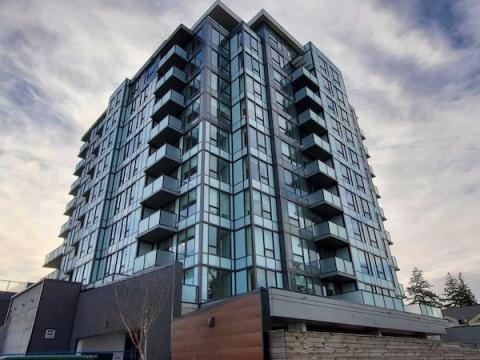In advance of the 2024 Budget, the Federal Government has announced a significant series of housing-related measures including: a $6 billion infrastructure fund comprised of $1 billion for municipalities for urgent infrastructure needs, and $5 billion to Provinces and territories; additional housing-focused requirements to access a forthcoming public transit fund; $15 billion in additional funding for rental construction; a Canada Builds fund modelled on BC Builds; and a $400 million top-up to the Housing Accelerator Fund.
Housing measures announced by the Federal Government this week include:
- A new $6 billion Canada Housing Infrastructure Fund, including $1 billion for municipalities for urgent infrastructure needs such as water, wastewater, storm water and solid waste infrastructure. The remaining $5 billion will be allocated to Provinces and Territories that can only be accessed with a commitment to key actions including: requiring municipalities to broadly adopt four units as-of-right and to allow more missing middle homes; adopt forthcoming changes to the National Building code; requiring as-of-right construction for the upcoming Housing Design Catalog; and implementation of measures from the Home Buyers’ Bill of Rights and Renters’ Bill of Rights. Notably, another requirement for accessing funding is a three-year freeze on increasing development charges from April 2, 2024 levels for municipalities with a population greater than 300,000. Provinces will have until January 1, 2025 to secure an agreement, after which time their funding will be transferred to the municipal stream if no agreement is reached.
- To access “long-term predictable funding” through a forthcoming public transit fund, municipalities will be required to take actions including: allowing high density housing and eliminating minimum mandatory parking requirements within 800 metres of a high frequency transit line; allowing high-density housing within 800 metres of post-secondary institutions; and completing Housing Needs Assessments for communities with populations of over 30,000.
- An additional $15 billion for the Apartment Construction Loan Program to support the development of 30,000 new apartments, together with reforms to the program that include extending loan terms, providing flexibility on certain requirements and launching a new frequent builder stream. As specified in the existing program guide, eligible borrowers include for-profit developers, non-profit developers, and municipalities. The current funding top-up follows another recent $15 billion top-up made as part of the Federal Government’s fall economic statement.
- A new Canada Builds Program modelled on BC Builds. The Federal Government announced in February that it would provide up to $2 billion in financing to increase the impact of BC Builds. It is unclear what if any new funding will flow to BC under the new Canada Builds Program, with details on funding and timing for the initiative yet to be announced.
- An additional $400 million in Housing Accelerator funding, a 10% increase over the previous $4 billion in funding intended to expedite the development of 12,000 new units over 3 years.
Further details on these measures are available in the announcements, made on April 2 (Canada Housing Infrastructure Fund, housing related requirements for the forthcoming public transit fund, and Accelerator funding top-up) and April 3 (top-up to the Apartment Construction Loan Program and introduction of Canada Builds).
In addition, the Honourable Sean Fraser, Minister of Housing, Infrastructure and Communities has indicated that in the next few weeks the Federal Government will publish a plan to address the housing crisis, based on three pillars: building more homes, supporting Canada's most vulnerable, and making it easier to rent or to buy a home.
Analysis for Local Governments
UBCM welcomes the new investments in the Apartment Construction Loan Program, having consistently advocated for an all-government approach towards addressing affordability, and calling for significant investments in rental housing.
UBCM also welcomes additional funding to assist with urgent infrastructure needs that are apparent in the current infrastructure deficit. However, there is an increasing infrastructure gap in the billions of dollars, which is further exacerbated by the need for housing to support rapidly growing communities with a finite amount of funding available to support this infrastructure. Development finance must continue to play a significant role in funding the needed infrastructure. Freezing development cost charges in an inflationary environment effectively transfers any additional costs to municipalities which means that costs will get passed on to existing and new residents through taxes and rents.
In addition, local governments in B.C. are operating within a rapidly shifting policy context with the recent stream of provincial legislative changes and federal announcements, raising questions around federal-provincial alignment, for example relating to how the three-year freeze on development charges would relate to the new development finance framework brought into effect by Bill 46. And while additional housing-focused requirements to access a forthcoming transit fund parallel recent changes brought into effect by the Province through Bills 44 and 47, careful consideration will need to be given to federal-provincial alignment on specific requirements (e.g., definitions of high-frequency and high density, and geography of application) while also providing adequate flexibility for local context.
UBCM is committed to working with the both the Province and Federal Government to address the housing crisis while ensuring that local governments remain well positioned to deliver the infrastructure needed for complete, resilient communities. UBCM will also continue to seek opportunities for local government engagement as new housing initiatives are developed.

